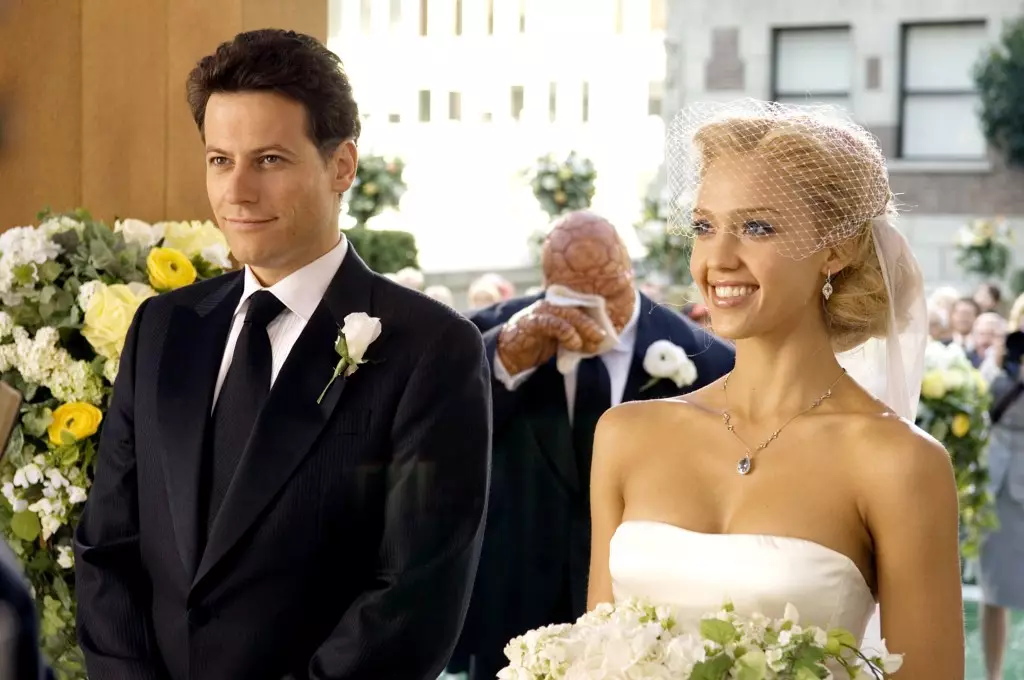The early 2000s Fantastic Four movies, while arguably a commercial success by many standards, exemplify the volatility of franchise filmmaking and the illusion of guaranteed continuity. Ioan Gruffudd’s reflections on the shelved plans for a third film reveal a bitter truth: that even promising projects with solid box office returns can be discarded with little regard for fandom or creative potential. The initial two installments, released in 2005 and 2007, had a certain charm and enthusiasm, yet they ultimately lacked the visionary leadership and narrative depth needed to sustain a long-lasting franchise. When the plans for a third installment were abruptly canceled, it wasn’t just a missed opportunity—it was a blow to the franchise’s credibility and to the fans who invested emotionally in its potential.
The decision to pursue a reboot more than a decade later underscores the inherent volatility within Hollywood’s franchise system. Instead of building on the original’s modest but genuine foundation, the reboot aimed to reset the narrative entirely, but what followed was a muddled blend of misguided storytelling and a disconnect from the beloved source material. That failure wasn’t just about poor box office numbers or negative reviews; it was about the franchise’s inability to evolve past its superficial appeal, betraying both its characters and its audience.
Lost Opportunities and Creative Stagnation
The departure of the original cast and the pivot to reboot the franchise highlight a broader trend in Hollywood: prioritizing spectacle over substance. Ioan Gruffudd’s nostalgia and pride in his portrayal of Reed Richards reflect a genuine respect for the character and the franchise’s potential. Yet, the fact remains that Hollywood’s short-sighted decisions—catering to market trends or chasing the latest cinematic craze—often override the value of continuity and character development. The failure of the 2015 reboot—despite high-profile castings and production budgets—proves that a shiny, modernized approach cannot compensate for a lack of authentic storytelling.
Crucially, the decision to reboot after the initial failure signals a broader industry issue: a reluctance to learn from past mistakes. Instead of nurturing the franchise’s core strengths—intelligent storytelling, faithful adaptation, and character-driven narratives—studio executives frequently opt for quick fixes that ultimately undermine their long-term brand. Fans’ hopes for a worthy third film in the original series aren’t based on nostalgia alone; they represent a desire for the franchise to grow into something meaningful, rather than remain a series of missed opportunities.
The Cultural and Political Implications of Franchise Reboots
In the context of contemporary media, the continued rebooting and reimagining of iconic franchises like Fantastic Four reflect more than just box office strategies; they highlight ongoing cultural debates. The decision to reshape or discard original narratives often signals deeper societal shifts—whether in values, representation, or storytelling priorities. From a centrist-liberal perspective, this pattern can be both a positive sign of change and a stark reminder of Hollywood’s inconsistency.
On one hand, reboots like Marvel’s recent take demonstrate a willingness to embrace diversity, reinterpret characters, and engage new generations of viewers. This evolution is vital for inclusion and for keeping franchises relevant in a rapidly changing cultural landscape. However, it also risks erasing historical contributions—such as Gruffudd’s portrayal—that helped lay foundations for modern superhero storytelling. The tension between honoring legacy and pushing forward with innovation is where the franchise’s ongoing struggle lies.
From a political vantage point, the franchise’s stagnation and frequent reboots illustrate the importance of sustained investment in creative integrity rather than short-term Hollywood profitability. A healthy, progressive entertainment industry should prioritize storytelling that respects its roots while embracing change—something that the failed attempts at franchise continuity have often neglected. This would mean valuing original performances, fostering continuity, and resisting the commercial urge to reboot merely for the sake of market repositioning.
The Future of the Fantastic Four: Hope or Continued Disappointment?
Despite the setbacks, fans and creators alike hold onto a sliver of hope: that someday the Fantastic Four will be treated with the reverence and creative ambition it deserves. Ioan Gruffudd’s honest reflections reveal a genuine passion for the characters and a recognition that their story is far from over. Yet, the cynical reality remains that Hollywood’s fixation with profit often trumps narrative integrity.
The fact that actors like Gruffudd are left out of current adaptations speaks volumes—these projects are often more about ticking boxes than authentic storytelling. As the franchise stands today, it teeters on the edge of renewal and irrelevance, depending on whether future filmmakers choose to respect its origins or prioritize spectacle and marketability over substance. If the industry truly embraced a more centered, responsible approach—valuing character, plot, and fan engagement—perhaps the Silver Surfer, Reed Richards, and the rest could finally be given the cinematic treatment they deserve, instead of being tossed aside in the relentless pursuit of the new.
In the end, the history of the Fantastic Four films illustrates a broader lesson about Hollywood’s priorities. It shows that without genuine commitment and respect for the storytelling process, even promising franchises are doomed to mediocre reboots and lost potential. The real victory would be for future iterations to honor what came before, learn from past mistakes, and craft narratives that resonate with audiences on a deeper level—something that the original films narrowly missed but still left a legacy worth fighting for.


Leave a Reply